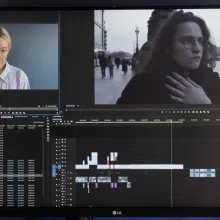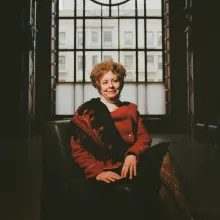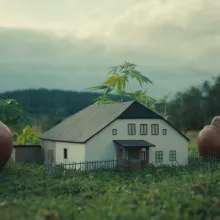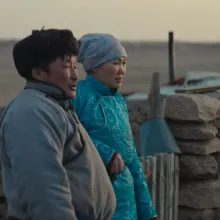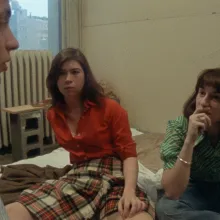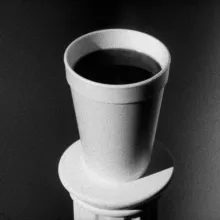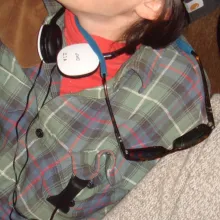In this interview, Marc Isaacs discusses his latest provocation, a hybrid doc set at the fictional “Synthetic Sincerity Lab”
Hybrid Docs
At this year’s edition, the Basque festival demonstrated why it prides itself on its political conscience, with many of its titles exploring
Heiny Srour, who made two landmark features advancing the role of women in liberation movements, is not shy about being a “first”
While Karlovy Vary may be best known for its star wattage and warm midsummer embrace of fiction auteurs, this year’s 59th edition (July 4–12) once again made a powerful case for documentary’s enduring vitality. Across the official selection, sidebars, and special screenings, nonfiction titles proved indispensable in reflecting Europe and the region’s evolving identities, eccentricities, and contradictions. This festival dispatch includes reviews of Grand Prix-winner Better Go Mad in the Wild, TrepaNation, Action Item, and Divia.
Year after year, TIFF Docs tends to be populated by glossy, formally conventional, commercial fare—occasionally punctuated by works from prolific documentarians and festival award winners. Nonfiction works marked by innovation and ambition are pushed to the periphery, a consistent gesture that betrays what the festival regards as “best” in the arena of nonfiction cinema. Here and elsewhere, I couldn’t help but feel the subtle repositioning of the festival in anticipation of the impending launch of TIFF’s official market in 2026. Invitations to seek hidden, artistically driven gems, to interrogate the collapsing of boundaries between fiction and nonfiction remained open across other programs such as Wavelengths and Centrepiece.
Working as a volunteer nearly two decades ago, Australian filmmaker Gabrielle Brady lived in and traveled all around Mongolia for 18 months. She
Martha Coolidge made her mark in Hollywood directing films like Valley Girl, Real Genius, and Rambling Rose, but before all that, she was breaking
“I don’t think of myself as a documentary filmmaker”: Documentary spoke with Kienitz Wilkins to discuss his methodology, his thoughts on documentary’s relationship to his work, and the festival landscape at large.
In 2018, to an audience of a dozen or so people at the Spectacle Theater in Brooklyn, Zia Anger gave a presentation of some of her abandoned work
Tommaso Santambrogio’s Oceans Are the Real Continents (2023), which opens on a black-and-white shot of an older Cuban woman sweeping her doorway





